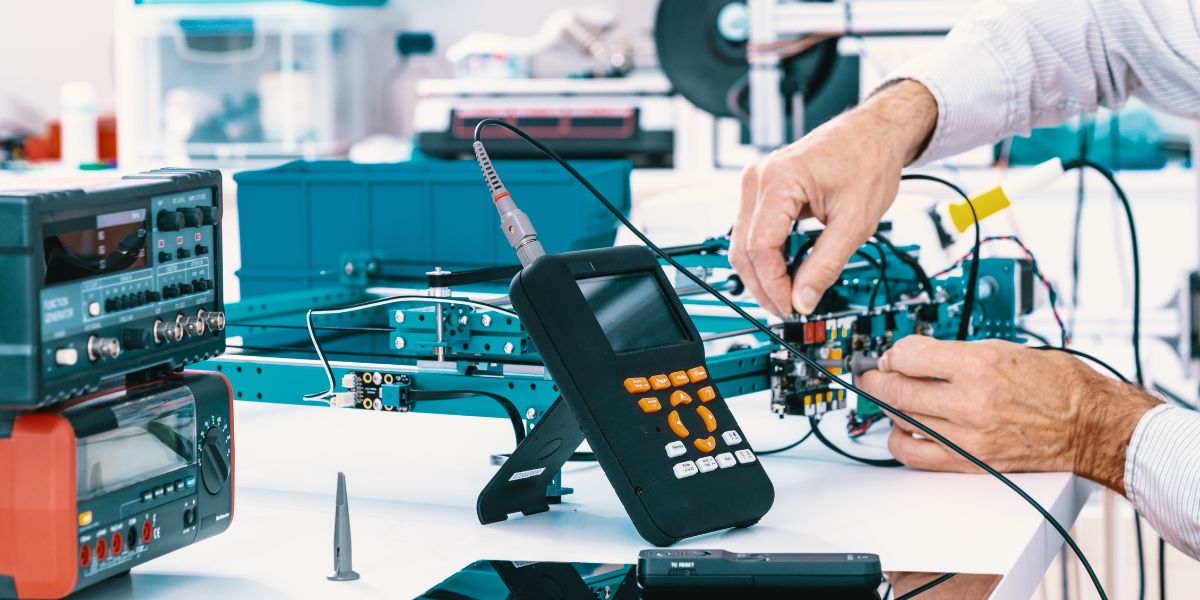
As you step into the realm of physics experimentation, equipping yourself with the right tools is paramount. From precise measurements to accurate data collection, the tools at your disposal can make or break your laboratory experience. But what exactly constitutes the essential arsenal for a beginner's physics lab? Let's begin by exploring the fundamental instruments that lay the groundwork for your scientific journey.
Basic Measurement Tools
When setting up your beginner's physics lab, you'll need essential basic measurement tools. These tools are crucial for conducting accurate experiments and obtaining reliable data. One of the most fundamental tools is a ruler or a measuring tape, which allows you to measure length with precision. Whether you're measuring the length of an object or the distance traveled by a moving object, a ruler is indispensable.
Additionally, a vernier caliper is essential for measuring more precise dimensions, such as the diameter of a small sphere or the thickness of a coin. This tool provides measurements to a higher degree of accuracy than a regular ruler, making it a valuable asset in your lab. A micrometer screw gauge is another critical tool for measuring extremely small dimensions, down to a thousandth of a millimeter.
Lastly, a measuring cylinder or a graduated cylinder is necessary for measuring volumes of liquids accurately. These tools are key in experiments involving liquids, where precise measurements are vital for the success of the investigation. Make sure to have these basic measurement tools ready before starting your physics experiments in the lab.
Timekeeping Instruments
To accurately measure time during your physics experiments, essential timekeeping instruments are required. A fundamental tool for timekeeping in physics labs is the stopwatch. With its simple start and stop functions, stopwatches allow you to precisely measure the duration of events like pendulum swings or free-fall experiments.
For more precise measurements, consider using a digital timer. Digital timers offer features like countdown capabilities and multiple timing modes, enhancing accuracy in your experiments.
Another crucial timekeeping instrument is the clock with a sweep second hand. Clocks provide a continuous reference for monitoring longer experiments or recording timestamps for data collection.
Additionally, atomic clocks can offer unparalleled precision by utilizing atomic vibrations to measure time. Depending on the nature of your experiments, choosing the right timekeeping instrument is essential for ensuring accurate measurements and reliable results in your physics lab.
Electrical Testing Equipment
Consider utilizing a multimeter to accurately measure electrical properties in your physics lab. A multimeter is an essential tool for any beginner experimenting with electricity. With this device, you can measure voltage, current, and resistance in circuits. By selecting the appropriate settings on the multimeter, you can gather precise data that's crucial for understanding electrical phenomena.
Another useful piece of electrical testing equipment is a circuit tester. This tool allows you to quickly determine if a circuit is complete and functioning correctly. By using a circuit tester, you can troubleshoot any issues in your circuits and ensure that your experiments run smoothly.
Lastly, don't forget about a power supply unit. This equipment provides a stable source of electrical power for your experiments. It allows you to control the voltage and current levels in your circuits, ensuring that you have consistent and reliable results. Having a power supply unit in your lab will give you the flexibility to explore a wide range of electrical concepts.
Data Collection Devices
Utilize data collection devices to gather and analyze experimental data effectively in your physics lab. These devices are essential tools that help you accurately measure and record various parameters during experiments.
One common data collection device is a digital multimeter, which can measure voltage, current, and resistance in circuits. This tool is crucial for verifying Ohm's Law and ensuring the proper functioning of electrical components.
Another important device is a data logger, which can automatically collect data over time, allowing you to analyze trends and patterns in your experiments. Data loggers are particularly useful for experiments that involve varying conditions or require continuous monitoring.
Additionally, sensors such as thermocouples, accelerometers, and light sensors can be connected to data collection devices to measure temperature, motion, and light intensity, respectively. By using these data collection devices in your physics lab, you can enhance the accuracy and efficiency of your experiments, leading to a better understanding of fundamental principles in physics.




